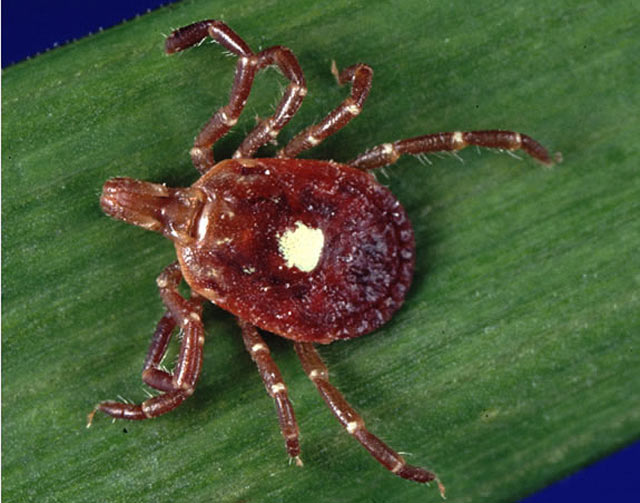A new study led by Dr Susan Wolver, and Dr Diane Sun, from Virginia Commonwealth University, explains why if you have been bitten by a tick, you may develop an allergy to red meat.

The Lone Star tick (The Centers for Disease Control and Prevention / The United States Department of Health and Human Services)
Published online in the Journal of General Internal Medicine, the study elucidates this connection and discusses the journey of the discovery.
Delayed anaphylaxis – a severe, life-threatening allergic reaction – to meat is a new syndrome identified initially in the southeastern United States. Patients may wake up in the middle of the night, with hives or anaphylaxis usually three to six hours after having eaten red meat for dinner.
Until recently, the link between red meat ingestion and anaphylaxis had remained elusive.
Dr Wolver, Dr Sun and colleagues’ analysis of three patient case studies sheds light on this reaction. It is thought to be caused by antibodies to a carbohydrate (alpha-gal) that are produced in a patient’s blood in response to a tick bite, specifically the Lone Star tick, Amblyomma americanum. This carbohydrate substance is also present in meat. When an individual who has been bitten by a tick eats the meat, his or her immune system activates the release of histamine in response to the presence of alpha-gal, which can cause hives and anaphylaxis.
Significantly, meat-induced anaphylaxis is the first food-induced severe allergic reaction due to a carbohydrate rather than a protein. It is also the first time anaphylaxis has been noted to be delayed rather than occurring immediately after exposure.
“Where ticks are endemic, for example in the southeastern United States, clinicians should be aware of this new syndrome when presented with a case of anaphylaxis. Current guidance is to counsel patients to avoid all mammalian meat – beef, pork, lamb and venison,” the researchers concluded.
_______
Bibliographic information: Wolver SE et al. 2012. A peculiar case of anaphylaxis: no more steak? The journey to discovery of a newly recognized allergy to galactose-1,3-galactose found in mammalian meat. Journal of General Internal Medicine; doi: 10.1007/s11606-012-2144-z







